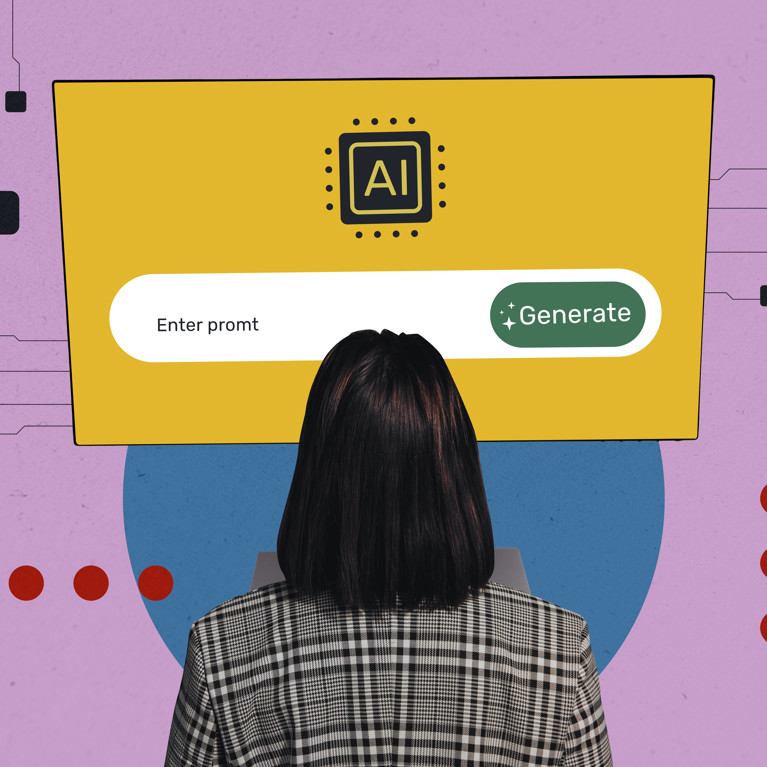- Posted on 5 Jun 2025
- 5-minute read
American venture capitalist and tech analyst Mary Meeker has delivered an epic 340-page report on AI Trends, announcing that AI has advanced faster than any other technology in history.
And there’s one thing we can thank for it: ChatGPT. It’s been the word on everyone’s lips for the past three years and it takes a starring role in this report. In the 11 years it took Google to hit 365 billion searches, it took OpenAI ChatGPT just two; that’s 5.5x faster than the search giant. While TikTok needed nine months and Instagram two-and-a-half years to reach 100 million users, ChatGPT hit that number in only two months.
The chatbot, the report continues, has just hit its largest milestone yet: as of April 2025, it has an estimated 800 million weekly active users. The report notes that AI is fairly cheap to use, but expensive to build. Cutting-edge AI models can cost up to $1 billion (or more) to build, train and maintain, but the cost of actually using the technology, or inference, has dropped 99% in terms of cost per 1 million tokens. Coupled with low-cost satellite drive Internet connectivity, the report continues, AI accessibility increases the potential for the world’s non-online population to come online (that’s roughly 2.6 billion people).
The report asks us to ‘Imagine a “first experience” of the internet that doesn’t involve typing a query into a search engine but instead talking to a machine that talks back.’ But what does this mean for investors in the long run? Venture capitalists are funnelling money into AI, and while this spells good news for users, the report is undecided as to ‘which side of the money-making equation the current AI aspirants will land.’
One of the catchiest takeaways was the report dubbing an increasingly competitive AI business a modern space race between China and the US. China’s rapid advancements in AI, with high-quality open-source models like DeepSeek, Alibaba’s Qwen 2.5 and Baidu’s Ernie 4.5 Turbo, are growing in popularity especially within China where ChatGPT and other US-owned platforms cannot operate.
Chinese citizens are also more optimistic about AI than their US counterparts and the country has more industrial robots in action than the rest of world. It’s a race that essentially comes down to which political system can innovate faster and win the world's trust, where purveyors of AI have ‘the potential to reshape the world order’. Or, in short, whoever runs AI runs the world.
Nicknamed the ‘Queen of the Internet’ for her astute, forward-looking reports on internet trends, Meeker is a widely respected authority in the field, but her latest report overlooks the underlying concerns about AI, especially in sectors like journalism. As our research on the impact of generative AI on public interest journalism demonstrates, high adoption rates do not necessarily equate to satisfaction or unrestrained AI use.
Our upcoming paper explores AI adoption which is growing across newsrooms, but journalists have raised serious ethical concerns about its use in creating public-facing content, citing risks such as misattribution, bias, hallucinations, and outright inaccuracies. To protect news integrity and maintain audience trust, journalists want strong human oversight of AI-generated content and clear internal guidelines to support ethical AI practices in journalism.
There is also journalist frustration over their work being used to train AI models without attribution, which also raises legal questions about potential copyright infringement. Several major publishers, including The New York Times, have already filed lawsuits against leading AI companies, such as OpenAI, over this issue.
While AI developers attract billions in investment and their tools become increasingly accessible and mainstream, the news industry is facing mounting economic sustainability challenges. Audiences are turning to ChatGPT or relying on AI-generated search and summarisation features like Google’s AI Overview for news content, and while evidence suggests traffic is being funnelled back to news websites (see Monica’s contribution) the long-term gains are still unknown.
Newsrooms are nevertheless embracing the benefits to using generative AI for automating content management, news discovery and other back-end tasks. They are however exercising restraint and advising caution because as Meeker’s report concludes, ‘one thing is certain – it’s gametime for AI, and it’s only getting more intense…and the genie is not going back in the bottle.’
References
Meeker, M., Simons, J., Chae, D., & others. (2025, May 30). Trends – Artificial Intelligence. BOND. https://www.bondcap.com/report/pdf/Trends_Artificial_Intelligence.pdf
Grynbaum, M. M., & Mac, R. (2023, December 27). The Times sues OpenAI and Microsoft over A.I. use of copyrighted work. The New York Times. https://www.nytimes.com/2023/12/27/business/media/new-york-times-open-ai-microsoft-lawsuit.html (Paywall)
Author

Tamara Markus
CMT Researcher






